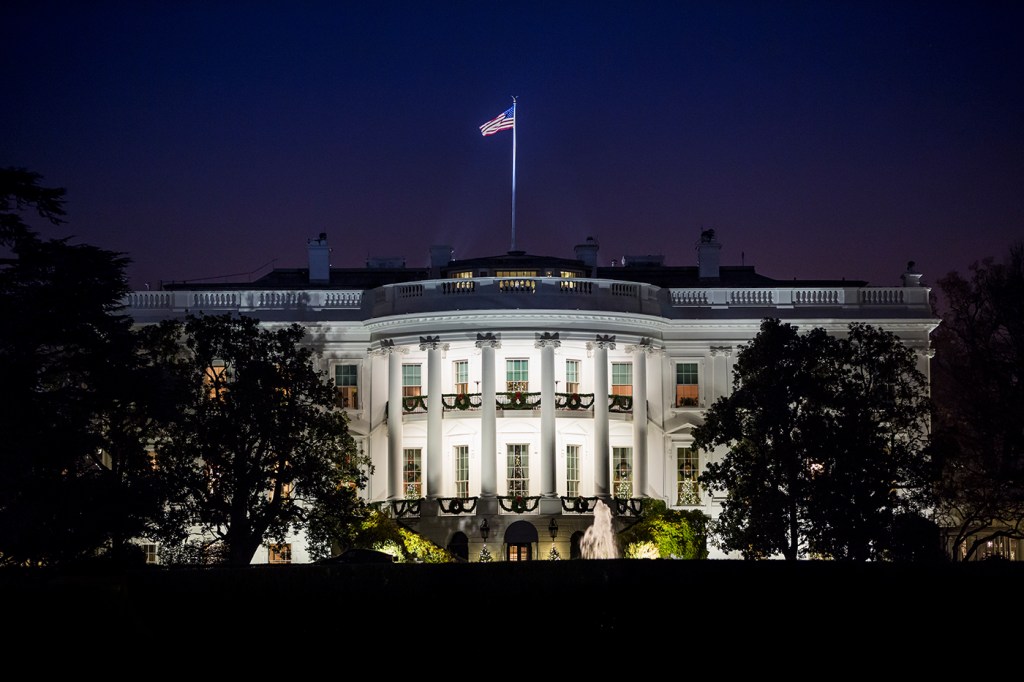Anonymous sources: friend or foe?

Leaked information and intel from anonymous sources have played heavily in the coverage of presidential administrations for decades. Indeed, just this week, The New York Times reported that President Donald Trump asked former FBI Director James Comey to “let go” of an investigation into a former national security adviser; and reporting by The Washington Post uncovered that the president revealed highly-classified information to Russian officials.
Both investigations relied on anonymous sourcing and leaked information from the White House. We asked Jonathan Kaufman, director of the School of Journalism and a Pulitzer Prize-winning reporter and editor, how journalists can trust the information they’re given and how the public can trust what’s reported.
What’s your assessment of the leaks and anonymous sources coming out of this administration? Is it on par with the information journalists got about past administrations?
Washington operates on leaks; this is just the way the world works. When this administration came into the White House, every journalist in Washington was just waiting for the phone to ring.
Now, leaks can take various forms. In some cases, journalists have long-established relationships with sources, where the understanding is: “I will be your source, but you can’t disclose my identity.” As a journalist, those are the easiest calls to take because what typically happens next is the editor will ask, ‘How do you know source is credible?’ The easiest way to answer is that the journalist has a longstanding relationship with the source, their stories have turned out to be correct, and so they’re trustworthy.
The other situation is that a journalist has a new source offering or cultivating information. At that point, the reporter has to run two gauntlets: Writing the story and confirming information, as well as this internal procedure where you need to justify to your editor that it’s worth keeping this source anonymous.
How do reporters and editors decide whether to trust the information from an anonymous source? Once they do, how do they decide it’s worth keeping that source anonymous?
There are lots of legitimate reasons why people request anonymity—they’re not authorized to talk to the press, they’re fearful of losing their job—and editors make a judgment if it’s worth it, generally based on the seriousness of the story.
Generally, a reporter will have to disclose to the editor who the source is. In these cases involving very high-ranking officials, anonymous sourcing tends to be the rule, really since Watergate.
In this case, I think it’s a pretty easy call for newsrooms. Typically, when a reporter is getting information from the FBI, or another intelligence agency, they’re going to insist on anonymity. It’s up to editor and the reporter to make sure they’re not getting duped into following an agenda.
How can the public trust information from anonymous sources?
As a reader, one of the first things you have to consider is, who’s reporting it? When you go to see a doctor, or when you go to make an investment, you go to a reputable place, you check out the doctor, you research the investment banker, and you go to people who you trust.
When you have news organizations that have a track record of accuracy and fairness in reporting, like The New York Times, The Washington Post, and CNN publishing this sort of information, that should carry a lot of weight.
In this hyper-partisan era, people have to separate out the accuracy of information from their political views. Sometimes there’s information out there that doesn’t agree with your political views, but that doesn’t mean it isn’t true. Not only don’t shoot the messenger, don’t distrust the messenger.
Additionally, in this case, there will likely be pressure through congressional hearings to reveal sources. What’s going on now, though, is within guardrails of anonymous sources—this is how Washington operates, and by and large the sources end up being true.
Moreover, news organizations understand better than anyone the importance of credibility; nobody wants to put out a story that’s false. Decisions on what information to print aren’t taken lightly.
When news organizations grant sources anonymity, how can they indicate to readers that these sources are trustworthy?
When information is attributed to “sources close to” someone, that information is generally coming from either the person themselves or someone genuinely close to them, though different news organizations have different standards for describing anonymous sources.
Always, though, journalists want to give readers a sense of the level of access they’re getting, so they would signal if they’re getting information fourth- or fifth-hand differently than they would if they got it from someone closer to the original source.
The New York Times reporter who broke the story on James Comey’s memo didn’t actually see the document, but had parts of it read to him. If The New York Times were willing to go with this story based on having it read to them, it would seem to me that they must have a really good source. If you think of who that might be, Comey is probably on that list, but we can’t say for sure it was him.
The New York Times reported that during the conversation referenced in Comey’s memo, Trump “began the discussion by condemning leaks to the news media, saying that Mr. Comey should consider putting reporters in prison for publishing classified information.” What do you make of Trump’s repeated threats to punish journalists?
It’s pretty clear to me that Trump is going to come after journalists at some point beyond just rhetorically. How the press will respond, how judges will respond, and how the public will respond to that is very worrisome.
The last time journalists faced this sort of action was during Watergate, when you had a president trying to stop the publication of stories, directing the IRS to audit journalists’ taxes. At the time, you had the courts standing up for press, you had politicians standing up for them, and there was broad support for the media.
Things have changed now. Economically, news organizations are much more vulnerable; politically, they’re much more unpopular; and there’s the question of whether new media leadership has the stomach for a fight with the president.
I was very worried about this right after Trump was elected. I do think at this point, however, Americans realize how important a free press is right now. They understand why journalism matters, and if there’s an attack, I think the press is in a stronger position than it was a few months ago because of all these controversies.





